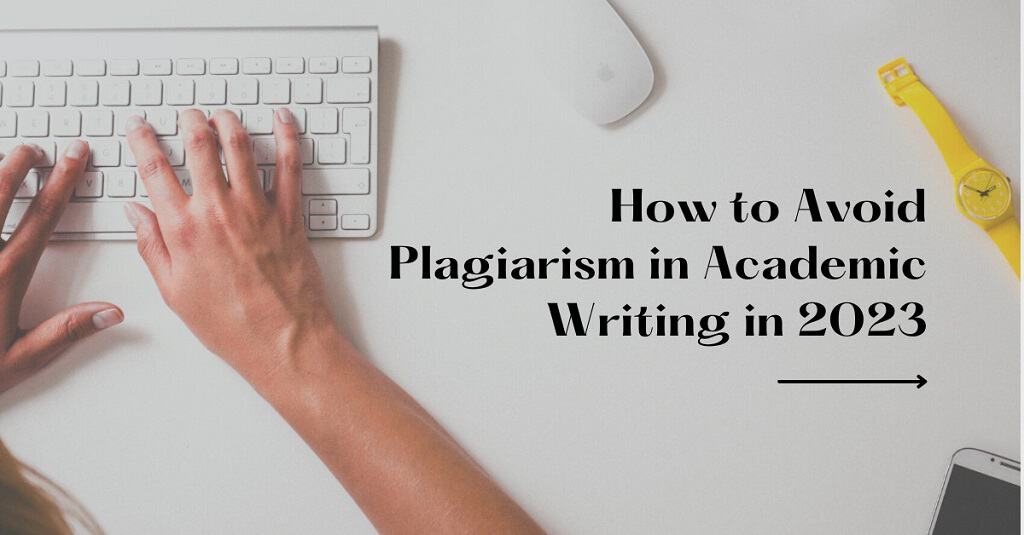How to Avoid Plagiarism in Academic Writing in 2023

Table of Contents
Unfortunately, plagiarism is a frequent problem in academic publishing. It typically takes the form of copying text directly from a published article and using it in another article. This text can range from a brief phrase to a full paragraph or more. Other common instances of plagiarism include presenting another researcher’s hypothesis as your own and using all or part of an image from a published paper.
Table of Contents
Plagiarism is committed when someone copies another person’s work with the intent of passing it off as their own. And it’s typically regarded as theft. However, unintentional plagiarism can be avoided if you properly credit sources and properly cite people when using their work.
In this post, I’ll share how you can avoid plagiarism in academic writing, but make sure you remain plagiarism free by running proper testing on your content.
What is Plagiarism?
Plagiarism is the deliberate or accidental act of appropriating another person’s ideas or work and passing them off as one’s own. The main issue with academic integrity, as you learn what constitutes plagiarism, is that the majority of college students don’t realize that, even if they use quotes and format them in a particular way, failing to give full acknowledgement still constitutes plagiarism.
Major forms of plagiarism
The first one is Direct plagiarism. It involves directly copying and pasting someone else’s work without proper attribution, including verbatim text, sentences, or paragraphs. Secondly, Self-plagiarism occurs when one reuses their own previously published work without proper citation, thereby presenting it as original content.
Consequences of plagiarism in 2023
Educational institutions have strict policies against plagiarism and impose penalties such as failing grades, course retakes, or even academic suspension. Plagiarism tarnishes one’s academic and professional reputation, impacting opportunities for scholarships, internships, jobs, and further education. It may result in legal action, especially in cases where copyrighted material is involved. Plagiarism can hinder career prospects, as employers and academic institutions value individuals with integrity and originality.
Strategies to Avoid Plagiarism in 2023

Avoiding plagiarism is not just about avoiding the negative consequences. It is about cultivating your skills as a researcher and writer, contributing to the academic community, and demonstrating your intellectual honesty and originality.
Figuring out academic integrity policies
Each institution has specific guidelines regarding plagiarism. Familiarize yourself with these policies to ensure compliance. It is essential to understand what constitutes plagiarism, the consequences associated with it, and the procedures for reporting and addressing cases of academic dishonesty.
In addition to understanding the policies, it is crucial to learn the appropriate citation styles required by your institution and follow them meticulously.
Common citation styles include APA (American Psychological Association), MLA (Modern Language Association), and Chicago. Each style has specific formatting rules for in-text citations, reference lists, footnotes, and bibliographies. Familiarize yourself with these styles and consistently apply them throughout your writing.
Properly citing and referencing sources
Accurately attributing ideas, quotes, paraphrases, and summaries to the original author’s is crucial in avoiding plagiarism. When incorporating information from external sources into your writing, use the prescribed citation style to cite the sources. Include the author’s name, publication year, page numbers (if applicable), and other relevant information as per the citation style guidelines.
It’s important to understand the distinctions between quoting, paraphrasing, and summarizing. Quoting involves directly using the author’s exact words, surrounded by quotation marks and accompanied by proper citation. Paraphrasing involves rephrasing someone else’s ideas or information in your own words while still acknowledging the original source. Summarizing involves providing a condensed version of the main points or ideas from a source.
While paraphrasing and summarizing, ensure that you do not accidentally copy the original text and always cite the source. Using a paraphraser will save your time in the paraphrasing process.
Conducting thorough research

Thorough research is the foundation of academic writing and helps you produce original work. Rely on reputable academic sources such as scholarly journals, books, and reputable websites to gather accurate and reliable information. Verify the credibility of the sources by considering factors such as the author’s expertise, the publication’s reputation, and the presence of peer-reviewed content.
During the research process, take detailed notes to facilitate accurate citation later. Include essential information about each source, such as the author’s name, publication title, publication date, and relevant page numbers. Maintaining organized and comprehensive notes enables you to easily reference the sources when writing your paper, preventing accidental plagiarism.
Developing good writing habits
Developing good writing habits plays a significant role in avoiding plagiarism. Begin your assignments early to allow ample time for thorough research, careful writing, and proper citation. Procrastination often leads to rushed work and increases the likelihood of unintentional plagiarism. Starting early gives you the opportunity to engage in critical thinking, produce original content, and properly attribute the sources.
Divide your writing process into smaller tasks to stay organized and avoid overwhelming yourself. You can complete each stage methodically and lower your risk of plagiarism by breaking the assignment into manageable steps.
Wrap up
It can happen that you don’t realize you’ve plagiarized in your writing. Perhaps you simply overlooked adding a link or accidentally added a sentence that wasn’t paraphrased. You must put forth effort and, most importantly, a desire to avoid borrowing. This will assist you in maintaining your attention on the important things. Pay close attention and focus. Additionally, to write more effectively, pick a time when you are the most motivated and sit down to write at that time.